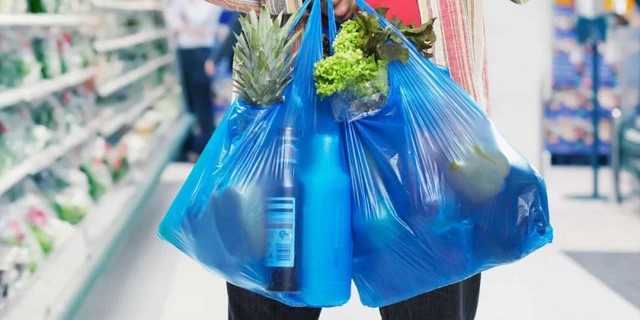Ha Noi to pilot downtown plastic ban from October
VGP - Ha Noi will launch a pilot ban on single-use plastics at cafés, restaurants, and drink stalls within the densely populated Belt Road No. 1 area starting this October, as part of an ambitious plan to curb the city’s daily output of 1,400 tons of plastic waste.

The initiative follows Directive No. 20, issued by Prime Minister Pham Minh Chinh on July 12, which calls for urgent environmental protection measures.
Under the directive, Ha Noi is tasked with phasing out single-use plastics at food and beverage establishments along Belt Road No. 1—a major traffic corridor passing through districts such as Tran Khat Chan, Nguyen Khoai, Dai Co Viet, Xa Dan, O Cho Dua, De La Thanh, and Hoang Cau.
Days before, the Ha Noi People’s Council approved a resolution detailing measures to cut plastic use in production, trade, and daily life.
Ban on single-use plastics
Under the resolution, hotels and tourist destinations must end the use of single-use plastics by January 1, 2026.
Local residents have voiced support, even while acknowledging the financial impact. “Using paper bags and cups will increase costs,” said Hanoi resident Nguyen Ngoc Mai. “But it’s necessary to protect the environment. I support the roadmap.”
The rules also extend to e-commerce, requiring online retailers to minimize plastic packaging or set up recycling and collection programs.
Starting January 1, 2031, Viet Nam will ban the production and import of all single-use plastics unless they carry the Viet Nam Eco-label certification. Meanwhile, all city agencies and government-affiliated organizations will be prohibited from using single-use plastics or non-biodegradable packaging, particularly for food-related purposes.
Wet markets under scrutiny
Traditional markets remain among the biggest sources of single-use plastic, from bags and foam boxes to cups. A gradual ban is scheduled to address this.
From January 1, 2027, markets and convenience stores will no longer be allowed to provide free non-biodegradable plastic bags. By January 1, 2028, their use and distribution will be completely prohibited, except for packaging goods.
The hospitality sector is also shifting. Many hotels, particularly in Cua Nam Ward, have begun replacing single-use toothbrushes and bottled water with eco-friendly alternatives.
Challenges ahead
Despite widespread support, officials and businesses acknowledge that implementation will be difficult. Changing consumer behavior and business practices requires more than regulation—it demands cultural adaptation, economic incentives, and new infrastructure.
Vu Quoc Tri, Secretary General of the Viet Nam Tourism Association, said the industry faces high costs. “In our sector, plastic is essential to serving guests,” he said. “Replacing it means changing almost everything, and that requires serious investment. Most businesses are small and still recovering from the pandemic.”
He added that without supportive policies and consistent enforcement, progress will be slow. “To promote sustainability, we need incentives that reward real change.”
National momentum
Ha Noi’s plan is part of a broader national movement to tackle plastic pollution. Since 2019 and 2022, tourists have been prohibited from bringing plastic bags to the Cham Islands (Da Nang) and Co To Island (Quang Ninh). Ha Long Bay banned single-use cups, straws, and bags six years ago.
In May this year, a tourist boat in Ha Long was suspended for seven days after allowing passengers to use disposable plastics.
Elsewhere, Ho Chi Minh City’s Thanh An Commune and tourist areas in Can Gio has set goals to cut plastic use by 2030. Da Nang has also piloted measures, with Han Market encouraging vendors to switch to paper bags and reuse clean plastic bags.
At the national level, Decree No. 08/2022 sets a phased ban: restrictions on the production and import of small non-biodegradable plastic bags will begin in 2026, followed by a complete halt to the production and import of single-use plastics—including foam food containers and bags—by 2030./.

